7 Best Antioxidant-Rich Foods to Reduce Inflammation
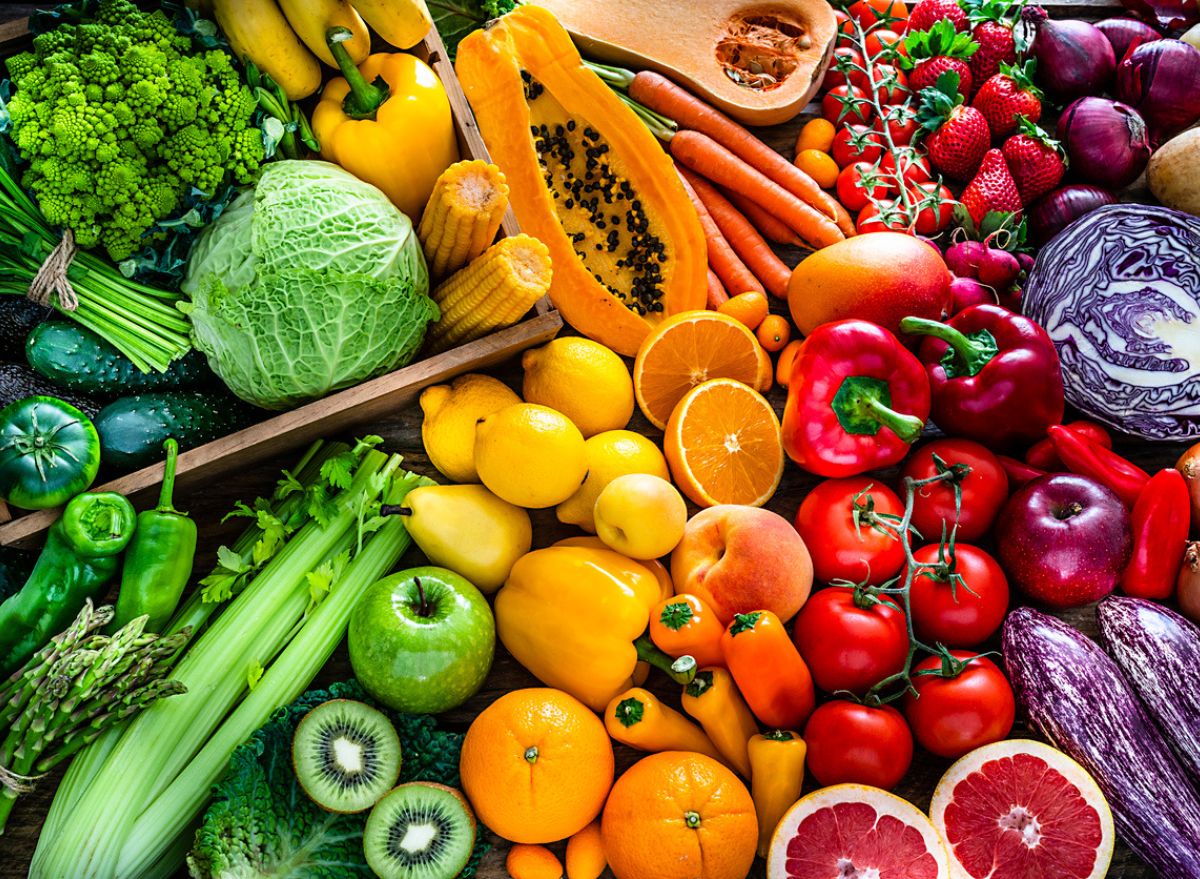
If there’s one positive change just about everyone could make for overall health, it’s to reduce chronic inflammation. This physical process is at the root of all sorts of undesirable health issues, from creaky joints to autoimmune conditions like ulcerative colitis and lupus. Even heart disease and mental health issues have been linked to high levels of systemic inflammation! Stress, environmental pollution, poor diet, lack of sleep, and a host of other facts of modern-day life add up to consistently elevated levels of internal agitation. Thankfully, eating antioxidant-rich foods can help.
We’re not powerless in the battle against inflammation, and including the right foods is a key tactic for taming the fire—like foods rich in antioxidants. Research shows that that these diet-derived compounds clean the cells of damaging free radicals—AKA highly reactive, unstable atoms that cause inflammation.
One way to spot antioxidant-rich foods is to look for bright colors, as in deep red tomatoes, dark purple grapes, or emerald-hued leafy greens. Some research indicates that the richer the color, the more antioxidants these natural foods contain. You can start there, or you can use this list of seven best antioxidant-rich foods to fight inflammation.
Wild blueberries
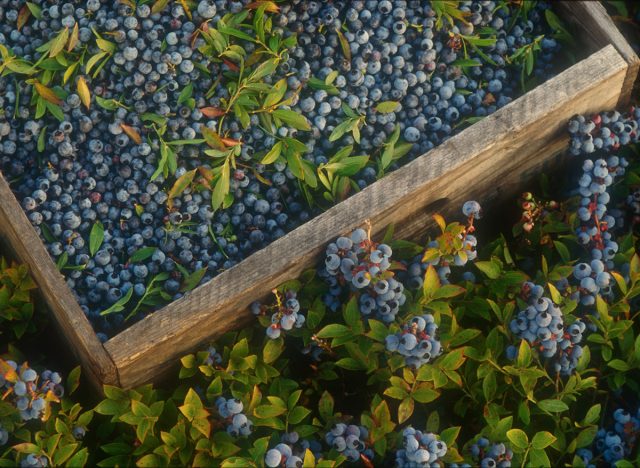
All berries are rich in antioxidants, so you can’t go wrong with strawberries, raspberries, blackberries, and more, but blueberries are a particularly great choice for inflammation-busting. The anthocyanin compounds that give them their signature purple-blue color have been linked to the prevention of chronic health issues like cardiovascular disease, cancer, and diabetes.
If you really want to up the ante on antioxidants, go wild! Some research shows that wild blueberries contain three to five times more antioxidants than regular blueberries. Eating one cup of wild blueberries provides 13,427 total antioxidants, about 10 times the USDA’s recommendation, according to the University of Arkansas Division of Agriculture Research and Extension.
Tomatoes
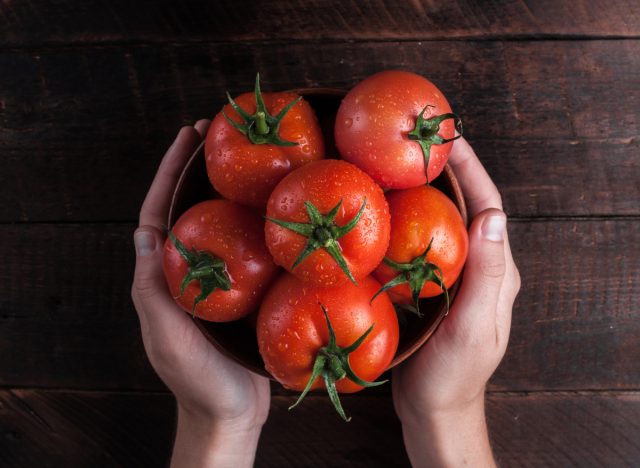
Slice ‘em, sauce ‘em, or sauté ‘em—any way you prepare tomatoes, they’ve got plenty of antioxidants. These red fruits (or vegetables, depending on who you ask) are rich in several free radical-fighting compounds, including lycopene, vitamin C, beta-carotene, and numerous flavonoids.
The power of lycopene in tomatoes has been studied as a potential anti-cancer agent. A 2022 research review confirmed that most studies that have looked at lycopene and cancer have yielded positive results, with prostate cancer being the most likely prevention target.
Green tea
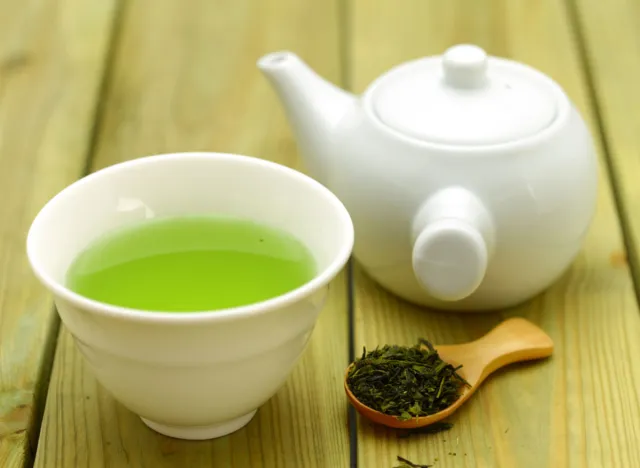
We’ve covered blue and red—now how about green? Green tea is an excellent source of antioxidants. Whether you sip it iced or hot, you’ll brew up some amazing health benefits. Antioxidants called catechins in green tea have anti-cancer and anti-inflammatory properties, according to 2017 research.
Oranges
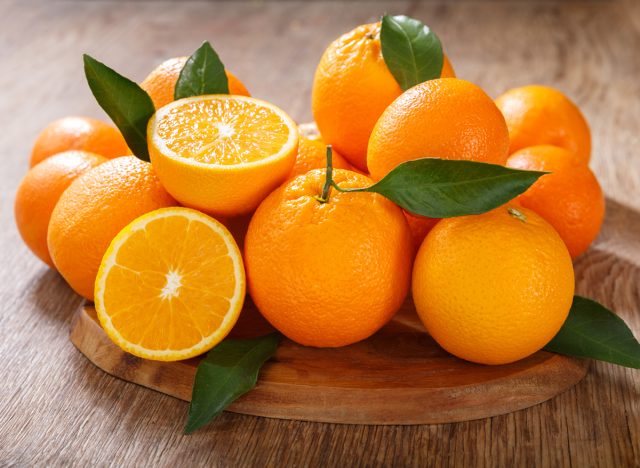
Grab a sunny orange to send free radicals packing. As you probably know, citrus fruits are packed with vitamin C. What you might not realize is that this everyday vitamin is a potent antioxidant that may have a role to play in lowering the risk of cardiovascular disease, stroke, vascular dysfunction, stroke, and some cancers. Whether you drink a morning glass of OJ or enjoy orange slices tossed on a salad, you’re adding to your antioxidant arsenal.
Spinach
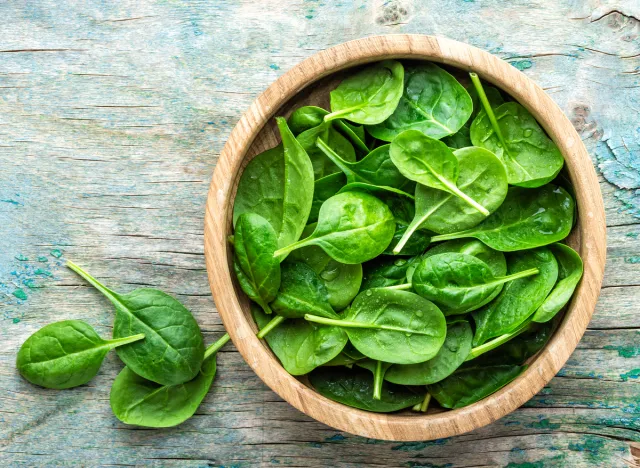
Spinach is well known for its nutrients like iron and vitamin K, but the nutrition profile of these leafy greens goes even further. Spinach is packed with a variety of antioxidants, including kaempferol, quercetin, lutein, and zeaxanthin. Lutein and zeaxanthin have been associated with improved vision and eye health, kaempferol may promote cancer prevention, and quercetin is often cited for boosting heart health.
Coffee

Your morning brew is another strong source of antioxidants. Its inflammation-fighting ability is linked with chlorogenic, caffeic, ferulic, and n-coumaric acids. One study found that these particular antioxidants were more prevalent in coffee than in other anti-inflammatory beverages like green tea and red wine.
Still, not all beans are equally packed with power to quell inflammation. The same study revealed that Robusta beans contained the most antioxidants—nearly twice the amount of Arabica beans. If antioxidants are something you’d like in your java, check the label on coffee bean packaging to ensure you’re purchasing this variety.
Dark chocolate
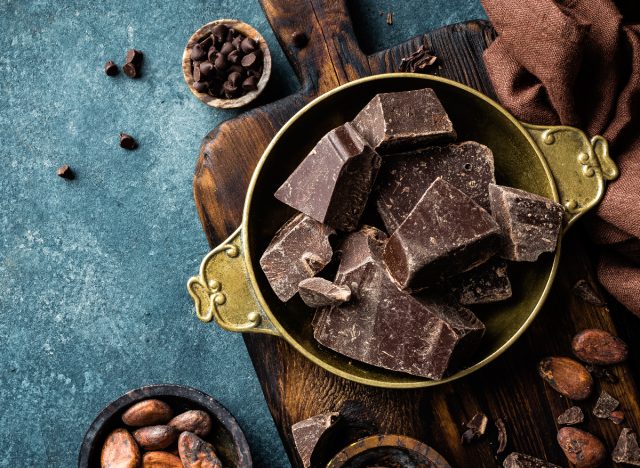
Isn’t it nice when your dessert comes with health benefits? Dark chocolate contains ample antioxidants—particularly flavonoids. These substances may have a role to play in heart health and cancer prevention.
The darker the chocolate (as in, the higher the cocoa content), the more antioxidants it’s likely to contain. But if you can’t stomach the bitter flavor of super-dark chocolate, look for a cocoa percentage of 70% or higher. You’ll still get antioxidant benefits in a more palatable, chocolatey package.
- Source: https://www.ncbi.nlm.nih.gov/pmc/articles/PMC8146040/
- Source: https://www.sciencedirect.com/science/article/pii/S2665927119300097#:~:text=Blue%2C%20purple%20and%20red%20color,accounting%20for%20their%20antioxidant%20capacity.
- Source: https://www.ncbi.nlm.nih.gov/pmc/articles/PMC5613902/
- Source: https://www.ncbi.nlm.nih.gov/pmc/articles/PMC3751288/
- Source: https://www.uaex.uada.edu/counties/miller/news/fcs/fruits-veggies/Blueberries_Full_of_Antioxidants.aspx#:~:text=Eating%20one%20cup%20of%20wild,you%209%2C019%20antioxidants%20per%20cup.
- Source: https://www.ncbi.nlm.nih.gov/pmc/articles/PMC8869745/
- Source: https://www.ncbi.nlm.nih.gov/pmc/articles/PMC9741066/
- Source: https://www.ncbi.nlm.nih.gov/pmc/articles/PMC5572593/
- Source: https://lpi.oregonstate.edu/mic/vitamins/vitamin-C
- Source: https://www.ncbi.nlm.nih.gov/pmc/articles/PMC8874683/
- Source: https://www.ncbi.nlm.nih.gov/pmc/articles/PMC3601579/
- Source: https://pubmed.ncbi.nlm.nih.gov/29966915/
- Source: https://www.ncbi.nlm.nih.gov/pmc/articles/PMC4665516/
- Source: https://www.ncbi.nlm.nih.gov/pmc/articles/PMC5465813/









